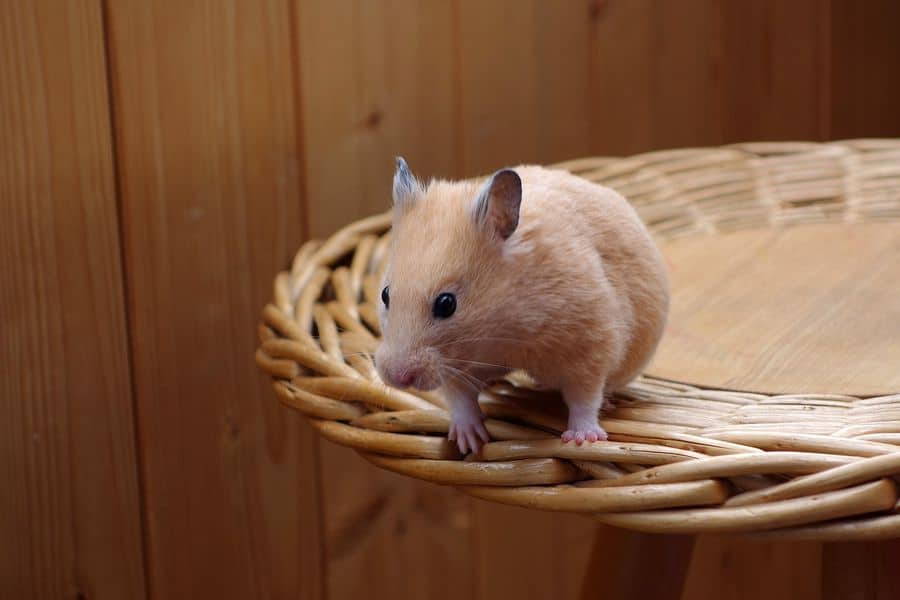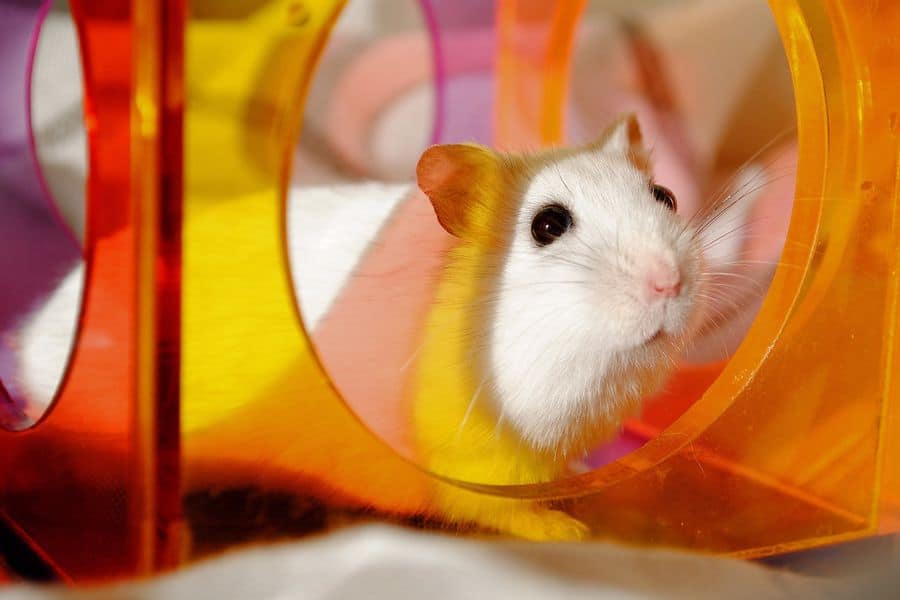Hamsters are pretty low-maintenance, yet they also have delicate moments you need to address. For instance, why is my hamster shaking? Learn the reasons why hamsters quiver, including tips on how to control the situation and care for them.
Contents
Why Is My Hamster Shaking?
Your hamster may be shaking due to physical duress coming from weather and hibernation effects. It may also be due to psychological factors such as dominance, fear, stress, and anxiety. In some cases, hamsters shake due to health issues, especially in the nervous and respiratory systems.
Hamsters shouldn’t have frequent shivers. If this happens, it may be an effect or a cause of an underlying disease. Either way, it’s crucial for pet owners like you to recognize the root cause so you’ll know the best way to respond.
Fear and Stress
Hamsters get startled easily. Some hamsters may react by shaking their bodies when facing nerve-wracking situations.
- A hamster may feel scared during the first few times you would hold it.
- Your pet may tremble when you’re trying to introduce it to a new human or hamster.
- A hamster may shake when there are significant changes in its cage, like new bedding or toys.
- It’s also possible that if you’re caring for a hamster rescued from an abusive home, your pet may develop a fear toward people.
- A hamster may tremble if it doesn’t feel safe in the enclosure due to a lack of secluded, dark space for retreating.
- A lack of food may make a hamster hungry, causing its body to quiver.
- Living with aggressive hamsters may make your pet feel afraid, causing shakes during interactions or defeat.
- Predatorial stress from other pets, such as cats or dogs, can make hamsters anxious to the point of shaking.
- A stressful environment caused by high-pitched noises or bumping of the cage can also make your hamster shake.
Climate and Hibernation Effects
The weather and changes in season can affect your hamster’s body, making shivering its reaction to temperature changes. When the ambient temperature becomes extremely cold or drops to 50 degrees Fahrenheit, your pet may hibernate and go into a low-energy condition.
The cold temperature causes your hamster’s body to fall into torpor or inactivity. This is a hamster’s way of shutting down the body to keep warm. The move produces a reflex that makes a hamster’s body shake.
Hamsters in the wild slip into hibernation mode when the environment becomes chilly. So, keep in mind that this is a natural defense mechanism in hamsters. However, monitor your pet as it shakes the body to warm up.
Medical Conditions
When a hamster trembles, it may also be a symptom of an underlying medical condition. If the shaking coincides with nasal discharge, skin parasites, glazed-over eyes, or watery stools, it could mean some medical emergency for your pet.
- Colds: Your hamster may shake and sniffle when it catches a cold. You may also observe sneezing and a runny nose. The shaking may stem from temperature changes or diabetes.
- Respiratory infections: A hamster suffering from respiratory infections may quiver at times. When accompanied by wheezing, an allergy or infection may be triggering an underlying problem. It may come from bedding dust or grains from the sand bath.
- Nervous system problems: Infection due to bacteria can also trigger some nervous system issues. If your hamster is shaking then rocks forward and backward, it may be suffering from a stroke. In some cases, excessive stimulation by frequently touching the body can trigger unusual muscle motions.
Dominance
When hamsters of the same gender squabble, they shake their bodies as a way of showing dominance or superiority. Some hamsters may quiver while sniffing or squealing.
Contact With Water
Bathing hamsters using water can make them shiver. Besides, bathing can strip the natural oils in their skin and fur, making them more susceptible to some diseases.
If you’re thinking of using water to remove stains or stubborn dirt on your pet’s coat and to not smell bad, you can try using a damp towel to loosen the dirt. Even then, bring your hamster to our clinic so I can provide the appropriate treatment.
What Should I Do If My Hamster Is Shaking?
Your hamster may tremble due to fear, anxiety, and stress. Sometimes, it can be due to the climate, contact with water, and health issues. The good thing is that there are various ways to help your pet and stop it from shaking.
- Minimize stress factors: Reduce quick movements that make your hamster think there’s a predator. Slowly approach your hamster or distance big pets away from the hamster’s cage. In addition, avoid sudden loud noises and bright lights near the enclosure.
- Gradually introduce changes: If you want to try new bedding or toys, check if your pet isn’t having an allergic reaction to the material.
- Set the ideal room temperature: Keep the room’s temperature around 65 to 75 degrees Fahrenheit. Gradually increase the temperature by one to two degrees until your pet stops warming up itself.
- Bring your hamster to the vet: If your hamster is shaking uncontrollably or frequently, it can be a sign of a severe health issue. Schedule a trip to our clinic so that I can conduct examinations, X-rays, and other emergency medical services.
Related Questions
Why Is My Hamster Digging So Much?
A hamster may dig too much when trying to make a nest for relaxing or napping. Likewise, your pet may want to change potty, so it is digging a new place to urinate. In some cases, your hamster may burrow in the bedding to search for a buried snack.
How Should I Hold and Carry My Hamster?
It’s best to hold and carry your hamster using both hands, with one hand under the bottom for support. Pick up your hamster facing toward you so it would be less likely to jump. Avoid putting pressure on the body to prevent them from getting frightened, consequently triggering their shaking.
Conclusion
Your hamster may be shaking because of dominance, climate, and hibernation effects. Similarly, it can be due to fear, anxiety, stress, and body ailments. If your hamster is shivering while also showing other signs of duress, bring your pet to our clinic right away for a checkup and proper treatment.



